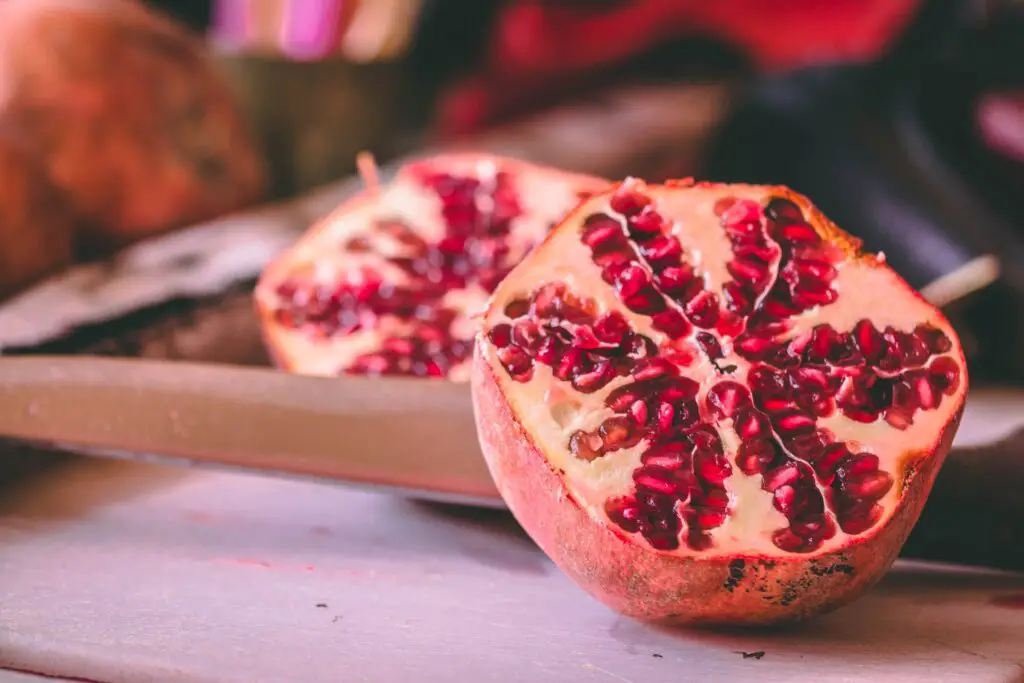How to say passion fruit in Spanish?
¿Cómo se dice passion fruit en español? Passion fruit in Spanish translation: Fruta de la Pasión, Maracuyá, Granadilla Púrpura , Pasionaria, Curuba, Parcha or Parchita, Calabacito or Ceibey . The scientific name of ‘passion fruit’ is Passiflora Edulis, and it is common to know it by the name of Maracuyá, Granadilla Púrpura, Pasionaria, Curuba, Parcha or Parchita, Calabacito or Ceibey in the Spanish language.

The translation for “passion fruit” in Spanish is “maracuyá” or “fruta de la pasión.” In some Spanish-speaking countries, one term may be more commonly used than the other. Here’s a brief article about the different terms for passion fruit in Spanish.
- Use “maracuyá” in Latin America
In most Latin American countries, “maracuyá” is the most commonly used term for passion fruit. This term is used in countries such as Mexico, Colombia, Peru, Chile, and Argentina, among others.
- Use “fruta de la pasión” in Spain
In Spain, “fruta de la pasión” is the more commonly used term for passion fruit. This term is used in both Spain and some other Spanish-speaking countries, but it’s less common than “maracuyá.”
- Use proper pronunciation
When saying “maracuyá” or “fruta de la pasión,” it’s important to use proper pronunciation. Here’s how they sound:
- “Maracuyá” – mah-rah-koo-YAH
- “Fruta de la pasión” – FROO-tah deh lah pah-see-ON
Passion fruit has a sweet taste with something acidic, very refreshing. This fruit comes from the tropical zone of South America. It is consumed for its pulp and juice (sweet-acid) with which juices, ice creams, sorbets, jams, juices, desserts, can also be prepared. It is a food rich in vitamins and minerals.
‘El maracuyá’ is recommended for regulating or improving sleep habits. It is excellent for improving the health of the skin such as healing and it favors the reduction of inflammations, contributing to more accelerated recovery.
In conclusion, the two main terms for passion fruit in Spanish are “maracuyá” and “fruta de la pasión.” The term you use may depend on the country or region where you are. Remember to use proper pronunciation when speaking Spanish.
Conversation:
Lily: Carlos, vamos a comprar un poco de maracuyá | Carlos, let’s buy some passion fruit
Carlos: Está bien | OK
Sentences with the term passion fruit in Spanish
| El maracuyá es muy sabroso. | – | Passion fruit is very tasty. |
| Mis primos tienen una mata de maracuyá. | – | My cousins have a passion fruit plant. |
| Todo el que come maracuyá queda fascinado. | – | Everyone who eats passion fruit is fascinated. |
| Siempre que te quede un maracuyá, me lo vendes a mí. | – | As long as you have a passion fruit left, you sell it to me. |
| ¿Habrá alguien que cultive el maracuyá? | – | Will there be someone who grows passion fruit? |
| ¡Qué delicioso es el jugo de maracuyá! | – | How delicious is passion fruit juice! |
| En el camión llevo guayaba, piña y maracuyá. | – | In the truck I carry guava, pineapple and passion fruit. |
| Tengo pesadillas cuando me como un maracuyá. | – | I have nightmares when I eat a passion fruit. |
| Me regalaron un maracuyá el dia de mi cumpleaños. | – | They gave me a passion fruit on my birthday. |
| Los voleibolistas adoran el dulce de maracuyá. | – | Volleyball players love passion fruit candy. |
| No paran de hablar de las propiedades beneficiosas del maracuyá. | – | They do not stop talking about the beneficial properties of passion fruit. |
| No dudes en pedirme maracuyá que yo siempre tengo. | – | Do not hesitate to ask me for passion fruit that I always have. |
| Cada lunes me gusta desayunar con sirope de maracuyá. | – | Every Monday I like to have passion fruit syrup for breakfast. |
| Lo siento pero ya no me queda ni un maracuyá. | – | I’m sorry but I don’t have a single passion fruit left. |
| En la mano tengo un maracuyá. | – | In my hand I have a passion fruit. |
| Hace días que cargo con el maracuyá que me regaló mi abuelo. | – | I have been carrying the passion fruit that my grandfather gave me for days. |
| He usado un maracuyá para tumbar un mango. | – | I have used a passion fruit to knock down a mango. |
| Sólo queda un maracuyá en la mata. | – | There is only one passion fruit left in the bush. |
| Cuando veo la belleza del maracuyá, entra la inspiración a mi alma. | – | When I see the beauty of passion fruit, inspiration enters my soul. |
| Te amo tanto como al maracuyá. | – | I love you as much as passion fruit. |
| Tráeme un maracuyá y te ofreceré un tesoro. | – | Bring me a passion fruit and I’ll offer you a treasure. |
| He cultivado el maracuyá para mis futuros nietos. | – | I have grown passion fruit for my future grandchildren. |
| El campesino ama sembrar maracuyá pues obtiene mucho dinero de su cosecha. | – | The farmer loves to plant passion fruit because he gets a lot of money from his harvest. |
| La planta del maracuyá es comestible. | – | The passion fruit plant is edible. |
| Aún no se ha inventado el jabón de maracuyá. | – | Passion fruit soap hasn’t been invented yet. |
| He pintado un maracuyá sobre lienzo. | – | I have painted a passion fruit on canvas. |
| El maracuyá mezclado con cemento sirve para hacer pasteles. | – | Passion fruit mixed with cement is used to make cakes. |
| A lo lejos se ve el redondo maracuyá sobre el muro. | – | In the distance you can see the round passion fruit on the wall. |
| He picado el maracuyá en varios pedazos. | – | I have chopped the passion fruit into several pieces. |
| ¡Quita ese maracuyá de la mesa! | – | Get that passion fruit off the table! |
